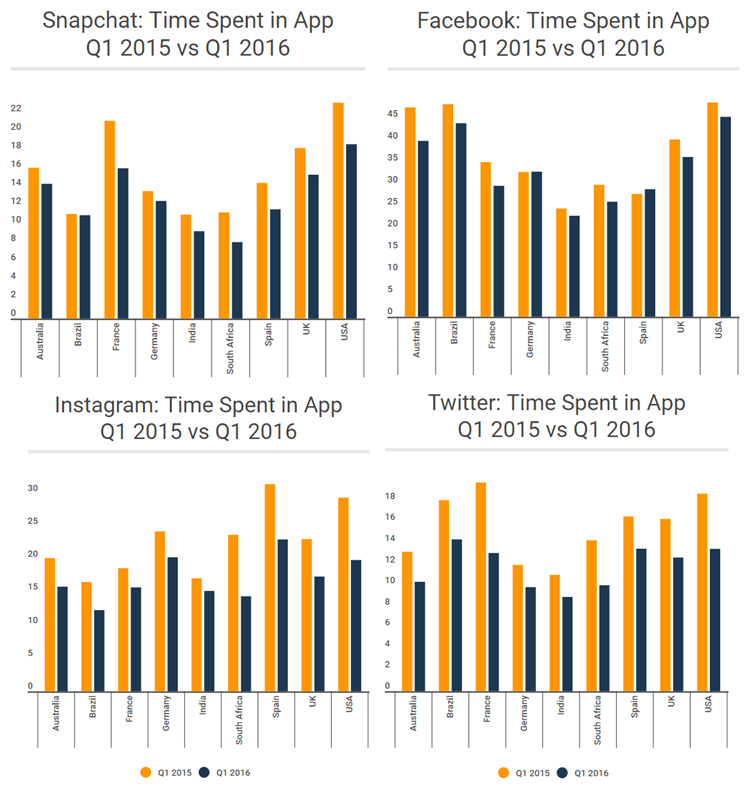People are spending less time on social networking apps such as Facebook and Instagram, according to a study conducted by London-based data collection company SimilarWeb.
Researchers analysed the amount of time Android users spent on social networking in the first quarter of 2015 compared to the first quarter of 2016.
Instagram suffered the steepest decline in global usage, down 23.7 per cent year-on-year. Twitter usage dropped 23.4 per cent, while time spent on Snapchat fell 15.7 per cent and Facebook usage fell 8 per cent.

The researchers tracked anonymous Android users from the UK, US, France, Spain, Australia, India, and Brazil.
Use of apps across all nine countries dropped year-on-year, apart from Facebook usage in Spain – where usage increased by just over 1 minute.
Android users in the US were found to spend more time on Snapchat compared to users from other countries, averaging about 17 minutes per day; in comparison Britons spent an average of 15.45 minutes per day on Snapchat.
A report on the findings published on SimilarWeb said: “Aside from time spent on Social Media apps, Current Installs were also mostly down when comparing March 2015 to March 2016. On all 4 social apps in the 9 countries examined, installs were down an average of 9%.”
One possible reason for the decline in usage of these popular social networking apps could be due to the rise of new niche apps such as the video app Periscope and encrypted messenger app Telegram.
In the UK, usage of Telegram increased by more than 40 percent year-on-year, up from 17 minutes in 2015 to 24 minutes.
Pavel Tuchinsky, marketing analyst and blog editor at SimilarWeb, was quoted by The Telegraph as saying:
“We see a trend towards privacy, and towards more individual communications.
“Let’s take the growth of Telegram as an example. Also Whisper and Yik Yak where people can chat anonymously. It seems people are moving to more closed communities.”

